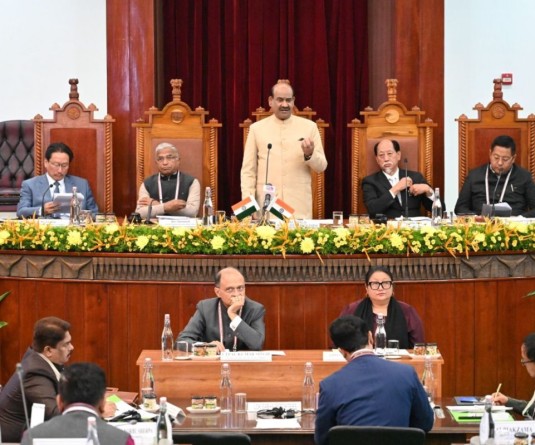
Our Correspondent
Kohima | July 23
The recently released study by the State Council of Educational Research &Training (SCERT) Nagaland has recommended that the Nagaland State Government own only an affordable and manageable number of schools.
This was part of the recommendations of the research team after its study on the quality in elementary school education with special reference to government policy interventions in Nagaland. This research study was conducted by the SCERT, Nagaland as part of its ‘Year of Research 2017.’
The seven member research team headed by Dr. Zavise Rume, Associate Professor, SCERT, based on the conclusion of the study stated that the “present system of state government owning too many schools is now proved to be counterproductive.” “The state government should close down non-performing schools so that the resources in the non-performing schools may be transferred to the performing schools where more resources are required,” it stated.
The study also recommended that the state government review and strengthen the policy of Communitisation of Elementary School Education Act, 2002.
It also advised that state Government should introduce vocational training centers attached to a school in every district to facilitate the students in opting for such job oriented vocational training courses after completion of elementary education.
The research team also recommended that there must be a clear-cut state policy on education for the educators to implement school education programmes in schools.
“The state government should constitute the State Education Commission from time to time to conduct an in-depth study on the present education system in the state,” it added.
While calling for more research on school infrastructure development and teachers’ academic and professional qualifications, it also recommended an exploratory study on State policy on School Education, a review study on Communitisation of Elementary Education, an assessment study on teacher’s dedication and commitment levels and a comparative study on the disparities between government schools and private schools
The study found that majority of the respondents (33%) opined that quality education means moral development; followed by 26% favouring quality education as the outcome of learning the school subjects, imparting basic learning skills (16%), producing good annual academic result (13%) and development of employability skills (10%).
The study noted that modern education should focus on the development of employability skills rather than producing students with “bookish knowledge” alone. Observing that there was much confusion about the concept of education, it suggested that there must be well-defined goals of elementary education in Nagaland.
In this, 27% of the respondents did not see any clear-cut defined goals of elementary education in Nagaland. 50% opined that the goal of elementary education in Nagaland should impart fundamental basic skills; 40% favoured elementary education to prepare children for fundamental basic skills; 23% were for elementary education laying a foundation for cognitive development. Only 6% of the respondents opined that elementary education should prepare children for basic language skills.
The study also observed that there was marked improvement in infrastructure development through various national flagship projects like SSA, quality of teachers in terms of qualifications and professional training and hence they were clear indicators of quality education in the state.
However, there was no significant improvement in academic performance of students studying in the government schools despite the aforesaid progress.
Meanwhile, 9% of the respondents reported that corporal punishment was still practiced in the schools; 7% reported prevalence of physical violence in schools; 14% reported incidences of substance abuse in schools; and 46% reported lack of emergency medical assistance.
94% of the respondents agreed that the present textbooks developed and prescribed by the SCERT were found to be child-friendly; 88% found them relevant to the mental ability of children; 91% found them easy to understand; and 89% found the textbook exercises relevant.
Further 79% of the respondents said that they could cover the whole syllabus within the stipulated time, while 86% informed that they had to organize remedial teaching to promote better learning. In this, 85% of respondents stated that there was improvement in children’s performance after remedial teaching.






